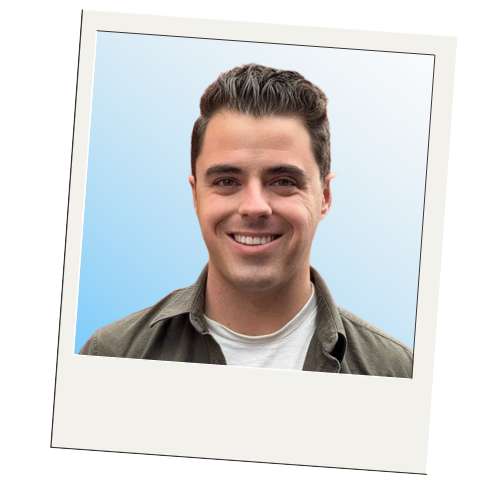Introducing Will Walker: Jump’s New Senior Associate
Thinking in SaaS funnels. Enterprise optimist. Former sales engineer. NYC restaurant hunter and Mario Kart enthusiast. Meet Will.

Before joining Jump Capital, Will Walker operated in the messy middle of startup life: selling, launching, and marketing SaaS products at companies trying to scale. It was there that he saw early-stage, AI-native startups taking big swings to disrupt incumbents. He wanted in.
That curiosity led him to Columbia Business School, stints at Torch Capital and Habitat Partners, and now to Jump, where he’s focused on investing in genAI, enterprise SaaS, and new software models that challenge the way software is bought, implemented, and experienced.
“When I decided to break into venture, I made a checklist: stage, sector, conviction to lead. But so many firms fit those boxes. Jump stood out because of the people.”
From SaaS Operator to Early-Stage Investor
William brings a cross-functional startup background, spanning sales engineering, GTM strategy, and marketing, to his work as a venture investor. “Sales is one of the most overlooked skills in tech,” he says. “Every job becomes a sales job if you zoom in far enough. Relationship-building, handling objections, driving consensus, all those soft skills are core to building companies and conviction.”
He’s especially interested in:
- Rethinking post-sale SaaS (onboarding, success, activation, retention)
- Applying AI to professional services (legal, accounting, investing, etc)
- Unlocking overlooked or proprietary data corpora in the genAI era
- Distribution and pricing model innovation
What gets him excited? When a founder doesn’t just have a sharp product, but a clear go-to-market edge or distribution insight that can unlock escape velocity.
Ethics, Economics, and the Human Side of Tailwinds
Will studied behavioral economics at Duke and ethics at Oxford, two disciplines that deeply shape how he thinks about startups. “I like economics and ethics for similar reasons. I’m interested in the forces that drive human decision-making. Ethics gives us a framework for what a ‘good’ decision should look like. Economics strips out the idealism and studies how we actually behave. There’s a lot of humanity in that gap, between the choices we should make and those we actually make.”
He applies this lens when thinking through societal shifts, like regulation, cultural trends, or AI adoption, and how those changes shape consumer and enterprise behavior. “Huge outcomes usually happen when multiple shifts converge. Understanding the space between what people should do and what they actually do helps us better predict what founders can build into.”
A Collegial Network and NYC Conviction
William credits Columbia Business School’s Columbia Venture Fellows program with giving him his first window into the tight-knit, collaborative nature of the NYC VC scene. That’s also how he met Chris Harper at Torch Capital, a key mentor during his transition into venture. “I would have never built that relationship without CVF, and I don’t think I realized how collegial the NYC ecosystem really is until I was in it. I love getting to collaborate with some of the best founders and investors in the country.”
He’s lived in NYC since 2018, and his enthusiasm for the ecosystem hasn’t wavered. “As software development becomes more commoditized, insight and originality matter more. NYC’s diversity of industries – finance, media, education, entertainment, food, sports, etc. – makes it a hub for ideas and inspiration. That’s what makes it the best tech ecosystem in the world.”
Why Jump?
“When I decided to break into venture, I made a checklist: stage, sector, conviction to lead. But so many firms fit those boxes. Jump stood out because of the people.”
“Everyone here is brilliant, thoughtful, and intellectually honest – but also just genuinely good. There’s a shared enthusiasm, a real belief that we’re living through the most significant tech revolution since the internet. And I get to work on it with people I admire.”
Beyond Venture
Will grew up as a nationally ranked tennis player, training four hours a day, seven days a week. “I’m not the most athletic guy in the room, but tennis taught me that discipline and commitment can take you far.”
These days, he channels that drive into running on the West Side Highway, racing to get into NYC’s hottest restaurant (most recently The Corner Store), and reading The New Yorker and The Atlantic like it’s assigned homework. He’s also recently gone down a rabbit hole ranking every Mario Kart track in the new game – and is still on the hunt for a Switch 2. (Holler if you have a plug).
Talk to Will about:
If you’re building something that challenges how software is sold, scaled, or experienced, especially in the genAI era, then Will is in. He’s particularly excited about post-sale innovation, creative commercialization strategies, and new ways AI can reshape services industries. He’s also game to talk books, restaurants, or the correct ranking of Mario Kart tracks. Try him.


 Front Page
Front Page